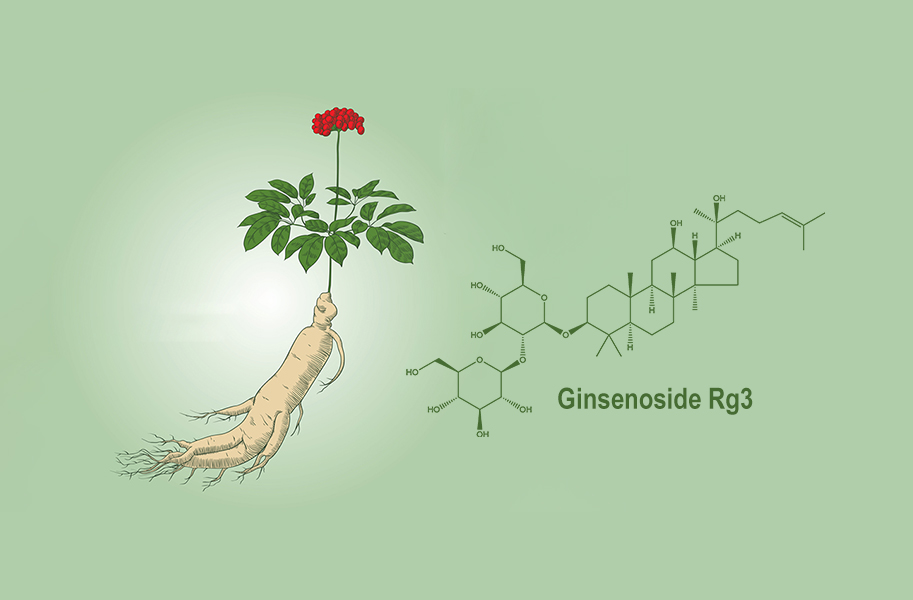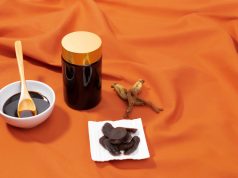 Non-small cell lung cancer (NSCLC) is a prevalent tumor type, affecting a large number of individuals worldwide. As researchers delve into novel therapeutic approaches, one compound has emerged as a potential ally in the fight against NSCLC: ginsenoside Rg3.
Non-small cell lung cancer (NSCLC) is a prevalent tumor type, affecting a large number of individuals worldwide. As researchers delve into novel therapeutic approaches, one compound has emerged as a potential ally in the fight against NSCLC: ginsenoside Rg3.
NSCLC poses significant challenges due to its aggressive nature and limited treatment options. Chemotherapy, while effective in some cases, often comes with toxic side effects. These adverse effects can compromise the patient’s immune system, leaving them vulnerable to infections and other complications.
Ginsenoside Rg3 is a rare pharmacologically active compound found in ginseng. Its unique properties have caught the attention of researchers, particularly its ability to boost immunity. Previous studies have demonstrated that ginsenoside Rg3 enhances immune function, making it an intriguing candidate for combination therapy.
To evaluate the efficacy of combining ginsenoside Rg3 with chemotherapy drugs, a meta-analysis was conducted. Researchers collected data from top databases, including PubMed, up until January 2023. The analysis included 12 trials involving 1008 NSCLC cases.
The meta-analysis revealed several promising findings:
- Improved Immunity-Related Biomarkers: Patients receiving the combined treatment of ginsenosides Rg3 and first-line chemotherapy showed better immune-related biomarkers. These included elevated levels of CD3+ T lymphocytes, CD4+ T lymphocytes, CD8+ T lymphocytes, and CD4+/CD8+ T lymphocytes.
- Enhanced Natural Killer (NK) Cell Activity: NK cells play a crucial role in immune surveillance against cancer cells. The combined treatment led to increased NK cell activity, potentially aiding in tumor control.
- White Blood Cell Count Recovery: Chemotherapy-induced white blood cell decline can weaken the immune system. However, patients receiving ginsenoside Rg3 alongside chemotherapy experienced improved white blood cell counts.
- Clinical Efficacy: Overall, the combined treatment demonstrated improved clinical outcomes compared to first-line chemotherapy alone.
This study confirms that ginsenoside Rg3 holds promise as an adjunct therapy for NSCLC patients. By bolstering immune function, it complements conventional treatments and potentially mitigates their adverse effects.
Beyond ginsenoside Rg3 lies a treasure trove of pharmacologically active compounds within ginseng. Among them are Rk1, Rk2, Rh2, Rh4, aPPD, and aPPT. These compounds contribute to ginseng’s multifaceted health-promoting properties.
One Canadian leading ginseng supplement brand, named Redsenol, stands out. It features sixteen rare and noble ginsenosides at an impressive 20% concentration.
As we unravel the mysteries of botanical medicine, ginsenosides like Rg3 beckon us toward a future where immunity meets innovation.
Reference:
Gao, S., Fang, C., Wang, T., Lu, W., Wang, N., Sun, L., Fang, W., Chen, Y., & Hu, R. (2023). The effect of ginsenoside Rg3 combined with chemotherapy on immune function in non-small cell lung cancer: A systematic review and meta-analysis of randomized controlled trials. Medicine, 102(14), e33463. https://doi.org/10.1097/MD.0000000000033463












